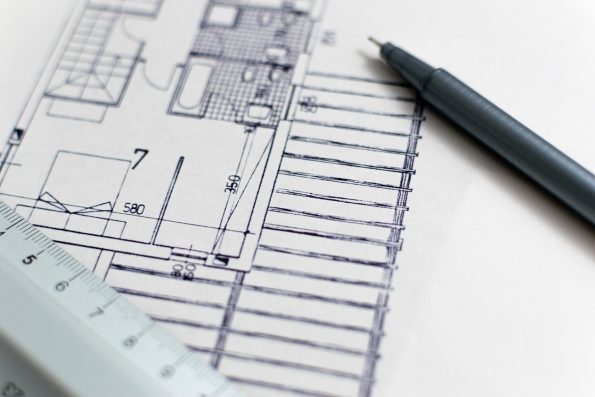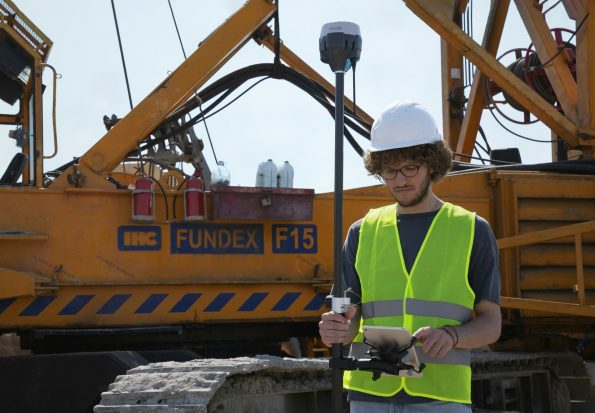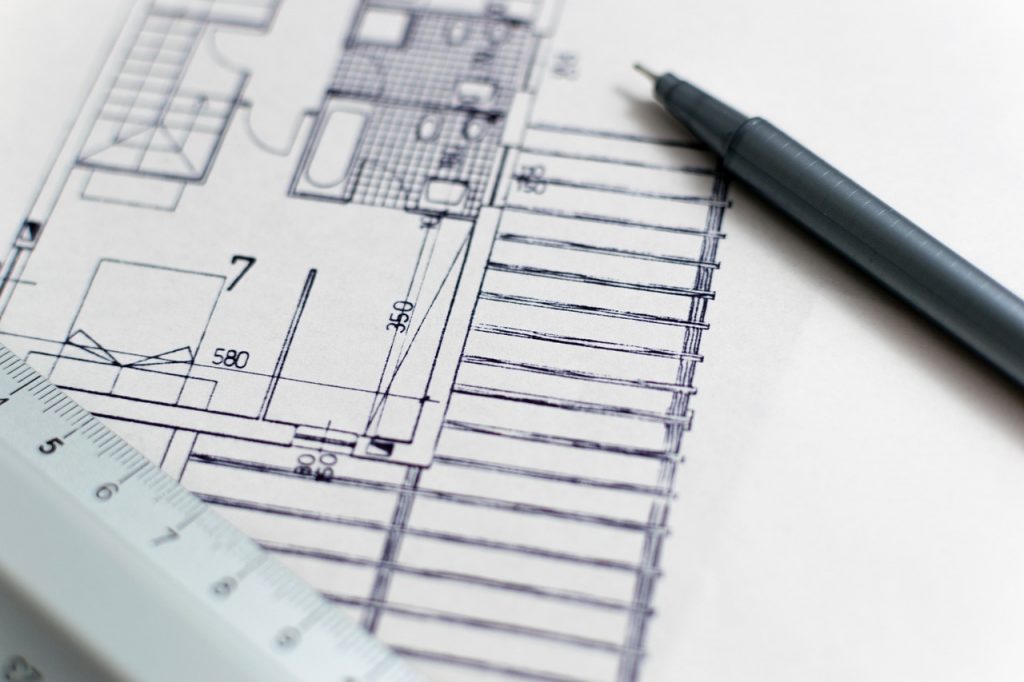Building a Career in Building Surveying
In the intricate dance of urban development, building surveyors play a pivotal role, ensuring that the structures around us are not only aesthetically pleasing but, more importantly, safe and sustainable. Their work is crucial in preventing potential disasters and enhancing construction efficiency, making a career in building surveying both impactful and fulfilling. Imagine a world where buildings crumble without warning; it’s a scenario far from reality, thanks to the vigilance of these professionals.

Image source: Pixabay
The essence of building surveying lies in its contribution to public safety and environmental sustainability. Surveyors assess the durability and design of structures, advising on energy-efficient materials and practices. Their expertise ensures that buildings stand the test of time and do so in harmony with our environment. For those drawn to challenges and driven by a desire to make a difference, building surveying offers a fulfilling journey, blending technical skills with a commitment to the greater good.
Navigating Educational Pathways
The journey to becoming a building surveyor starts with the right education. Degrees and diplomas in this field are designed to equip students with a broad spectrum of knowledge, from understanding building codes to mastering surveying technology. These programs are not just about acquiring technical skills; they’re about developing the ability to think critically and solve complex problems, qualities that are indispensable in the real world of building surveying.
Educational programs emphasise practical experience, incorporating internships and project work that simulate real-world scenarios. This hands-on approach ensures that students are not only ready to enter the field upon graduation but are also equipped to excel in it. Choosing the right program is a critical step towards a successful building surveying career, one that balances theoretical knowledge with practical application.
The Certification Journey
Certification is a testament to a surveyor’s expertise and commitment to industry standards. The path to certification is rigorous, involving comprehensive examinations and practical experience requirements. “Passing the APC involves attaining specified levels of competencies in technical areas, as well as in business skills and professional ethics,” explains industry expert Abigail Lewis. This holistic approach ensures that certified surveyors are well-rounded professionals, capable of navigating the complexities of the field.
The journey to certification is challenging but rewarding, leading to professional growth and recognition. Certification opens doors to leadership roles and specialised fields within surveying, marking a significant milestone in a surveyor’s career. It’s a mark of excellence that sets individuals apart, underscoring their dedication to upholding the highest standards of their profession.
Essential Skills and Qualities for a Successful Surveyor
A successful building surveyor embodies a set of core skills and qualities that enable them to excel in their profession. Attention to detail is non-negotiable; in a field where minor oversights can have major consequences, precision is paramount. Effective communication is also crucial, as surveyors often act as intermediaries between architects, contractors, and clients, translating technical jargon into understandable language.
Adaptability is another key trait, given the ever-evolving nature of building surveying. Successful surveyors embrace change, continually updating their knowledge and skills to stay ahead of the curve. This profession rewards curiosity and a lifelong commitment to learning, qualities that are essential for anyone looking to make a significant impact in the field.

Image source: https://unsplash.com/photos/man-in-green-and-yellow-vest-standing-beside-orange-and-black-heavy-equipment-4QzsYY-7lKo
Mapping Your Career
The career trajectory in building surveying offers a diverse range of opportunities for growth and specialisation. From entry-level positions to expert roles, the field caters to various interests and ambitions. Some may choose to focus on historic preservation, ensuring renovations respect the character of ancient structures, while others might specialise in sustainability, advising on green building practices.
Each step on this career ladder brings new responsibilities and opportunities for personal and professional development. Whether leading a team on a major construction project or consulting on environmental impact assessments, building surveyors play a critical role in shaping our built environment. The possibilities are vast, reflecting the diverse needs and challenges of modern construction.
Leveraging Mentorship and Networking for Growth
Mentorship and networking are invaluable for anyone embarking on a career in building surveying. Isabella Martin, a career advisor at the University of Technology Sydney, has developed a comprehensive mentorship program that guides students into successful careers, emphasising the importance of certification and continuous learning. Through mentorship, seasoned professionals share their knowledge and insights, helping newcomers navigate the profession’s challenges and opportunities.
Networking builds a community of professionals who support and inspire each other, sharing experiences and best practices. Engaging with peers and industry leaders opens doors to new opportunities and insights, making it a catalyst for professional development. For those starting in building surveying, embracing mentorship and networking is essential, providing the tools and confidence needed to thrive in a competitive and dynamic field.
Inspiration from the Field
The career of Kyrillos Ghaly, an experienced property professional specialising in building certification and compliance, exemplifies the impact one can have through dedication and expertise. As the Director at Building Certifiers Pty Ltd, Ghaly’s journey from obtaining a Diploma and Certificate 4 in Building & Construction to becoming a recognised leader in the field showcases the potential for career advancement within building surveying.
Liam Scott’s transition from a junior surveyor to a recognised expert further underscores the importance of perseverance and continuous learning. His story, along with Ghaly’s, serves as a powerful reminder of the possibilities that lie within building surveying, inspiring newcomers with their successes and the challenges they’ve overcome.
Balancing Challenges with Rewards in Surveying
Building surveying comes with its set of challenges, from navigating complex regulations to managing diverse stakeholder expectations. However, these challenges are balanced by the rewards of the profession, including the satisfaction of contributing to safe and sustainable building practices. The profession offers a unique blend of fieldwork and office-based analysis, keeping the work engaging and dynamic.
The satisfaction also comes from professional recognition and career advancement opportunities. As surveyors gain experience and expertise, they open doors to leadership roles and specialised fields, each offering new challenges and rewards. It’s a career that offers both personal and professional fulfilment, making the hurdles along the way well worth navigating.
Staying Ahead: Future Trends in Building Surveying
The field of building surveying is shaped by technological advancements and regulatory changes. Staying ahead means being attuned to these trends, understanding their implications for the profession. The integration of drones for aerial inspections and the adoption of building information modeling (BIM) are transforming surveying practices, enhancing efficiency and accuracy.
Regulatory changes reflect society’s shifting priorities, with sustainability becoming a central focus. Surveyors must navigate these changes, ensuring compliance with the latest regulations. Adapting to these trends requires a commitment to continuous learning, a willingness to embrace innovation, and seek out training to stay at the forefront of the profession.
Launching Your Building Surveying Career
Starting a career in building surveying is a journey of discovery, challenge, and reward. It begins with education, laying the foundation for your career, followed by certification, a key milestone validating your skills. Gaining practical experience through internships, apprenticeships, or entry-level positions is crucial, as is engaging in mentorship and networking.
As you navigate this path, remember that building surveying is a profession of impact, ensuring the safety, sustainability, and beauty of our built environment. With dedication and perseverance, you can build a rewarding career that makes a difference in the world, contributing to the well-being of communities and shaping the future of our built environment.

